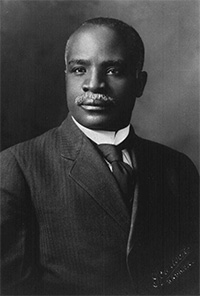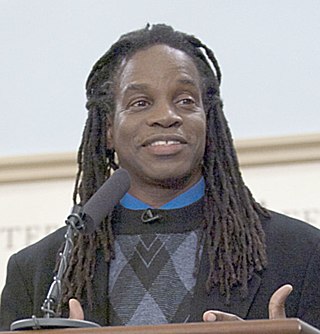Related Research Articles

Black studies or Africana studies, is an interdisciplinary academic field that primarily focuses on the study of the history, culture, and politics of the peoples of the African diaspora and Africa. The field includes scholars of African-American, Afro-Canadian, Afro-Caribbean, Afro-Latino, Afro-European, Afro-Asian, African Australian, and African literature, history, politics, and religion as well as those from disciplines, such as sociology, anthropology, cultural studies, psychology, education, and many other disciplines within the humanities and social sciences. The field also uses various types of research methods.

Afro-Cubans or Black Cubans are Cubans of full or partial sub-Saharan African ancestry. The term Afro-Cuban can also refer to historical or cultural elements in Cuba associated with this community, and the combining of native African and other cultural elements found in Cuban society, such as race, religion, music, language, the arts and class culture.

Kwame Akroma-Ampim Kusi Anthony Appiah is a British-American philosopher and writer who has written about political philosophy, ethics, the philosophy of language and mind, and African intellectual history. Appiah is Professor of Philosophy and Law at New York University, where he joined the faculty in 2014. He was previously the Laurance S. Rockefeller University Professor of Philosophy at Princeton University. Appiah was elected President of the American Academy of Arts and Letters in January 2022.

Kelly Miller was an American mathematician, sociologist, essayist, newspaper columnist, author, and an important figure in the intellectual life of black America for close to half a century. He was known as "the Bard of the Potomac".

Aviva Chomsky is an American professor, historian, author, and activist. She is a professor of history and the Coordinator of Latin American, Latino and Caribbean Studies at Salem State University in Massachusetts. She previously taught at Bates College in Maine and was a research associate at Harvard University, where she specialized in Caribbean and Latin American history.
TransAfrica is an advocacy organization in Washington, D.C. that seeks to influence the foreign policy of the United States concerning African and Caribbean countries and all African diaspora groups. It is a research, education, and advocacy center for activism related to social, economic and political conditions in Africa, the Caribbean, and Latin America and other parts of the African Diaspora. TransAfrica is the largest and oldest social justice organization in the U.S that focuses on the African world. It has served as a major research, educational, and organizing institution for the African and African descendant communities and for the U.S. public in general.
Colombia is a sovereign state situated in South America. It has been a member of the United Nations since 5 November 1945, and is party to a variety of international agreements concerning human rights. It also has a series of domestic laws concerning the protection of human rights. However, Colombia's human rights record often contradicts directly with the laws and agreements to which it is bound; Colombia was referred to as the country with the "worst human rights record in the western hemisphere," by HRW in 2007. The same was said of Guatemala in 1998, as well as Cuba in 2012 and Venezuela today. In the UK Foreign Office annual human rights report for 2010, Colombia features as one of 20 "Countries of Concern".
Joseph A. Cari Jr. is an American merchant banker, public policy expert, and philanthropist currently residing in New York. Cari's professional career has spanned the worlds of merchant banking, media, public policy, politics, law and education.
Black Hispanic and Latino Americans, also called Afro-Hispanics, Afro-Latinos, Black Hispanics, or Black Latinos, are classified by the United States Census Bureau, Office of Management and Budget, and other U.S. government agencies as Black people living in the United States with ancestry in Latin America, Spain or Portugal and/or who speak Spanish, and/or Portuguese as either their first language or second language.
Mitchell A. Seligson was the Centennial Professor of Political Science and Professor of Sociology at Vanderbilt University. He founded and was Senior Advisor to the Latin American Public Opinion Project (LAPOP), which conducts the AmericasBarometer surveys that currently cover 27 countries in the Americas. Seligson has published many books and papers on political science topics. He was elected to membership in the General Assembly of the Inter-American Institute of Human Rights in 2011.
Third World socialism is an umbrella term for many movements and governments of the 20th century— all variants of socialism— that have taken place in numerous less-developed countries. There have been many leaders of this practice and political philosophy which remained strong until at least the 1990s, including: Michel Aflaq, Salah al-Din al-Bitar, Zulfikar Ali Bhutto, Buddhadasa, Fidel Castro, Muammar Gaddafi, Saddam Hussein, Juan Domingo Perón, Modibo Keïta, Walter Lini, Gamal Abdel Nasser, Jawaharlal Nehru, Kwame Nkrumah, Julius Nyerere, Sukarno, Ahmed Sékou Touré and other socialist leaders of the Third World who saw socialism as the answer to a strong and developed nation.

Epsy Alejandra Campbell Barr is a Costa Rican politician and economist who served as the Vice-president of Costa Rica from 8 May 2018 to 8 May 2022. She is the first woman of African descent to be vice president in Costa Rica and in Latin America.
Racism in Cuba refers to racial discrimination in Cuba. In Cuba, dark skinned Afro-Cubans are the only group on the island referred to as black while lighter skinned, mixed race, Afro-Cuban mulattos are often not characterized as fully black or fully white. Race conceptions in Cuba are unique because of its long history of racial mixing and appeals to a "raceless" society. The Cuban census reports that 65% of the population is white while foreign figures report an estimate of the number of whites at anywhere from 40 to 45 percent. This is likely due to the self-identifying mulattos who are sometimes designated officially as white. A common myth in Cuba is that every Cuban has at least some African ancestry, influenced by historical mestizaje nationalism. Given the high number of immigrants from Europe in the 20th century, this is far from true. Several pivotal events have impacted race relations on the island. Using the historic race-blind nationalism first established around the time of independence, Cuba has navigated the abolition of slavery, the suppression of black clubs and political parties, the revolution and its aftermath, and the special period.

Clarence Lusane is an American author, activist, lecturer and freelance journalist. His most recent major work is his book The Black History of the White House.

Virginia Tilley is an American political scientist specialising in the comparative study of ethnic and racial conflict. She is Professor of Political Science at Southern Illinois University-Carbondale in the US.

Jaime Aparicio Otero is the Bolivian Permanent Representative to the Organization of American States and was Bolivian Agent to the International Court of Justice, in the Hague, in the process against Chile related to the Silala waters. Ambassador Aparicio is a career diplomat, lawyer, journalist and a Washington-based legal and political advisor. He was also a political analyst working in international public and corporate affairs in Latin America, the Caribbean, North America, and Europe. He has a Law Degree from the Higher University of San Andrés of La Paz, the Bolivian Diplomatic Academy and the Institute d’Etudes Politiques commonly referred as Sciences Po de Paris.
Alejandro de la Fuente is an academic and art curator. He is the Robert Woods Bliss Professor of Latin American History and Economics, Professor of African and African American Studies and of History at Harvard University. He is also Director of Afro-Latin American Research Institute at the Hutchins Center for African and African American Research at Harvard. His research focuses on specializes in the study of comparative study of slavery and race relations.
Mala Htun is an American political scientist, currently a professor of political science at the University of New Mexico. Htun studies comparative politics, particularly women's rights and the politics of race and ethnicity with a focus on Latin America.
Anani Dzidzienyo was a professor of Afro-Brazilian studies at Brown University. He is known for his scholarship on the African diaspora in Latin America.
References
- 1 2 Race and Revolution: Cuba and Blackness
- 1 2 3 4 5 6 7 "Kwame Dixon, Professor at Syracuse University". Archived from the original on 2016-10-11. Retrieved 2012-04-24.
- ↑ Black Latin America on Fire | Dixon | A Contracorriente
- ↑ "SU professors edit landmark book on Afro-Latin American rights". Archived from the original on 2016-03-03. Retrieved 2012-04-24.
- ↑ "e5.2 Film Review - Afro-Cinema in Latin America: A new cultural renaissance". Archived from the original on 2012-09-15. Retrieved 2012-04-24.
- 1 2 http://aei.pitt.edu/9575/1/2005.1%20Dixon.pdf [ bare URL PDF ]
- ↑ University Press of Florida: Comparative Perspectives on Afro-Latin America